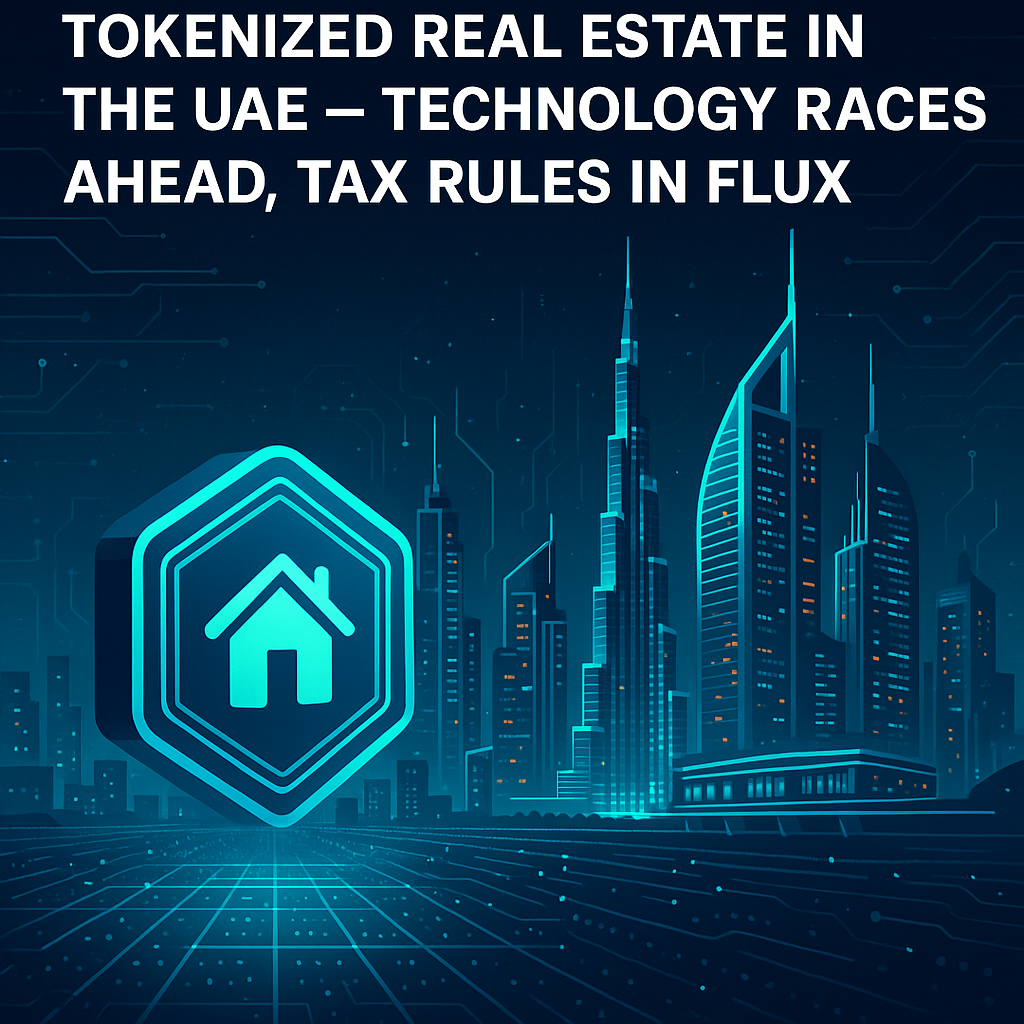How Tokenization Works: Market Accessibility and Transparency
Tokenization leverages blockchain technology to convert real-world property ownership into a series of digital tokens. Each token represents a proportional stake in a given property. This allows investors to:
- Buy fractions of high-value properties rather than entire assets.
- Trade tokens easily on digital platforms, improving liquidity.
- Participate globally without being subject to geographic gatekeeping or large minimum investments.
These features democratize real estate investing, letting retail investors, expatriates, and cross-border asset managers all gain exposure to the Dubai property market’s steady yields and capital gains.
The Taxation Puzzle: A Market Outpacing Regulatory Clarity
Despite its advantages, tokenization introduces unprecedented complexity for both taxpayers and tax authorities in the UAE:
1. Asset Classification: Real Estate or Virtual Asset?
- If Deemed Real Estate:
- Commercial properties: Subject to 5% UAE VAT.
- Residential property: Generally VAT-exempt.
- If Treated as Virtual Assets:
Digital tokens may be considered financial instruments or digital assets, sparking questions about whether issuance or trading attracts VAT—and, if so, at what rate (standard, zero, or exempt), varying based on transaction characteristics and investor domicile.
2. Rental Income and Yield Distribution
- For direct property owners: Rental yields are taxed according to real estate laws.
- For token holders: The situation is less clear. If tokens are treated as beneficial ownership in property, income payouts may follow existing rules. If classed as financial returns on digital assets, alternate frameworks may apply.
3. Secondary Trading and Gains
- Traditional Real Estate: Transfers subject to land transfer fees and registration.
- Tokenized Assets: Day-to-day trading of tokens could be classified as transfer of securities or virtual assets, with VAT and potential capital gain implications depending on the exact asset and transaction structure.
4. Platform and Service Fees
- Are platform fees “real estate facilitation” (potentially VAT-able at 5%) or “digital/financial services” (possibly zero-rated/exempt for international clients)?
- Contract wording and the technology underlying transactions play a major role in determining the applicable tax regime.
Compliance Hazards and Industry Recommendations
- Reclassification Risk: The absence of precise regulation increases the likelihood that deals could be retroactively assessed by the Federal Tax Authority (FTA).
- Diligence is Vital: Investors and platforms should build thorough VAT and broader tax analysis into every part of the transaction—especially contract drafting and documentation. Consultations with qualified legal and tax experts experienced in blockchain, real estate, and UAE tax law are now non-negotiable.
- Cross-border Complications: For foreign investors, double-tax treaties and local entity structures can create both opportunities and additional complexity (e.g., for profit repatriation and compliance).
The Road to a Robust Framework
- Regulatory Evolution: The FTA and other UAE government bodies are actively consulting with industry to update laws in line with the pace of innovation. Case-by-case rulings, contract analysis, and regulatory guidance are becoming more frequent, but a comprehensive framework is still in development.
- Industry Engagement: Ongoing industry-regulator dialogue is critical. Market participants—including developers, platforms, and investors—are advised to remain proactive, contributing input to ensure laws ultimately balance innovation and stability.
Strategic Takeaways for Market Participants
- Monitor Ongoing Developments: The regulatory environment is fluid. Subscribe to FTA guidance and industry legal updates.
- Prioritize Specialist Advice: Each project may need bespoke structuring depending on asset type, investor profile, and intended transaction flow.
- Document Everything: Carefully drafted agreements that detail asset nature and transaction purpose offer the best defense against future compliance issues.
- Plan for the Unexpected: Tax regimes can—and will—change. Build flexibility and contingency into investment models and investor communications.
Conclusion:
The UAE’s tokenized real estate opportunity is substantial—but so are the tax and compliance complexities. The most successful investors and platforms won’t just embrace new technology: they’ll take a proactive, informed approach to evolving tax strategy, ensuring that innovation leads to lasting, risk-managed growth for the market as a whole.
Considering a Real Estate Allocation for Your Next Wealth Strategy?
Explore how platforms like Liquidity.io are giving CEOs and founders access to high-performing real estate without operational headaches — allowing you to focus on your business while your assets quietly grow.
🎁 Sign up now and receive $10 in LQDTY tokens—your gateway to digital finance.
Don’t miss this limited-time opportunity to invest smarter and trade seamlessly.
🔗 Explore Liquidity.io today.
📅 Schedule a free demo and discover how our platform can elevate your investments!
Let’s shape the future of finance—together.
#Tokenization #DigitalAssets #BlockchainTechnology #AssetTrading #FractionalOwnership #Fintech #SmartContracts #RealEstateTokenization #FinancialInnovation #InvestmentTrends #CryptoAssets #FutureOfFinance #WealthManagement #AlternativeInvestments #Liquidity #DigitalTransformation
